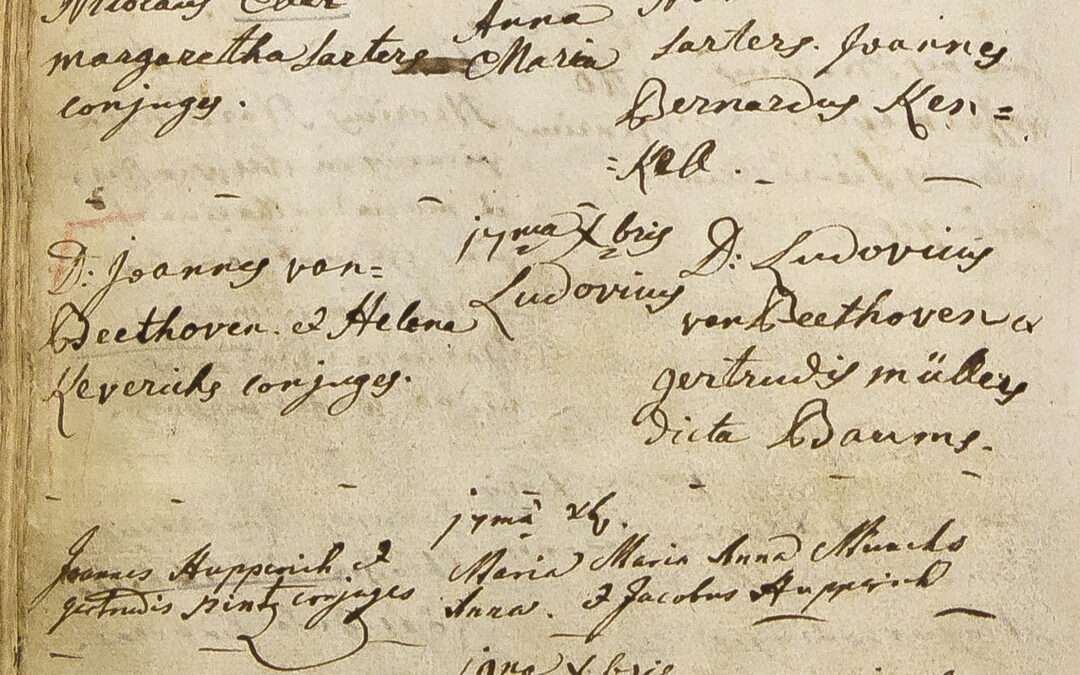
Beethovenfest Bonn – not just in 2025
On August 28th, the time has come: The Beethovenfest 2025 will open under the patronage of Hendrik Wüst, Minister-President of NRW, followed by over 100 events in and around Bonn until September 27th. During this time, the city of Bonn will be dedicated to its greatest son, Ludwig van Beethoven, and his music. The festival looks back on a long and rich history. It first took place in 1845 on the occasion of the ceremonial inauguration of the Beethoven monument on Bonn’s Münsterplatz. Composer Franz Liszt played a key role in its realisation, both as a financier and as artistic director of the entire celebration. He promptly devised a multi-day festival and, as conductor, designed the musical events in a concert hall specially built in 11 days. It was the beginning of a festival tradition that continues to this day. Initially held only on important Beethoven anniversaries, pianist Elly Ney established a regular schedule for the festival in the 1930s. Since the construction of the new Beethoven Hall in 1959, it has taken place every two to three years, and since 1999, every autumn for four weeks. The people of Bonn support the festival with two associations, the “Freundeskreis Beethovenfest Bonn e.V.” and the “Bürger für Beethoven“, and with their regular attendance.
The festival has always seen itself as a bridge between tradition and innovation, treating Beethoven’s works not as a museum opus, but as a source of inspiration for musical exploration. Beethoven’s pieces are performed, reinterpreted and juxtaposed with contemporary music. Furthermore, commissions encourage a modern, direct engagement.
This year’s festival motto “Alles ultra”, loosely adapted from J.W. von Goethe, is fitting. The slogan stands for the pursuit of new things, creative innovation, and the pushing of boundaries. While Goethe denounced the excesses of his contemporaries as a problematic development resulting in disorientation and mediocrity with “Everything but… is now ultra! Everything transcends unstoppably, in thought as well as in action” in 1825, in Bonn 2025, “Everything ultra” is reinterpreted and understood not only as an interpretation of world events but above all as an expression of Beethoven’s nature and his musical genius. For it was precisely the nonconformist Beethoven who often took uncharted paths and actively and innovatively approached the future. Appropriately, artistic director Steven Walter is promising “around 100 events to celebrate our colourful, vibrant, and, despite all the social concerns, also full of opportunities. A festival is dedicated to human diversity, the positively crazy, and the humanistic “ultras” – entirely in the spirit of Beethoven” and promises: “The Beethovenfest Bonn 2025 will be loud, it will be surprising, it will be chic, it will be moving – and certainly ultra!” – Well then!
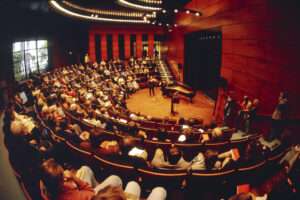 If you look through the Beethovenfest program, you will indeed discover a lively potpourri of concert forms. As expected, there are the major symphony concerts at the Opera House by famous orchestras playing works by Beethoven (2nd, 3rd, 5th, 6th, 7th, 8th Symphonies as well as the Violin Concerto – after all, it is still the Beethovenfest), but also symphonic works by Mozart, Shostakovich, Stravinsky, and others. Also notable are the many chamber concerts taking place at a wide variety of venues: Classical chamber music, with piano and string ensembles, is primarily represented in the Chamber Music Hall of the Beethovenhaus. At the other venues performances are mixed according to the motto “Anything but classical” where unusual, new and even improvised interplay between various instruments creates unusual yet fascinating sound experiences. For example, the Kreuzkirche offers cross-genre soundscapes, a walk-in musical theatre and relaxed after-work concerts. The “Pantheon,” “Harmonie,” and “Haus der Springmaus” cabaret theatres offer a colourful mix of performances, and percussion concerts are popular at the Dransdorf tram station.
If you look through the Beethovenfest program, you will indeed discover a lively potpourri of concert forms. As expected, there are the major symphony concerts at the Opera House by famous orchestras playing works by Beethoven (2nd, 3rd, 5th, 6th, 7th, 8th Symphonies as well as the Violin Concerto – after all, it is still the Beethovenfest), but also symphonic works by Mozart, Shostakovich, Stravinsky, and others. Also notable are the many chamber concerts taking place at a wide variety of venues: Classical chamber music, with piano and string ensembles, is primarily represented in the Chamber Music Hall of the Beethovenhaus. At the other venues performances are mixed according to the motto “Anything but classical” where unusual, new and even improvised interplay between various instruments creates unusual yet fascinating sound experiences. For example, the Kreuzkirche offers cross-genre soundscapes, a walk-in musical theatre and relaxed after-work concerts. The “Pantheon,” “Harmonie,” and “Haus der Springmaus” cabaret theatres offer a colourful mix of performances, and percussion concerts are popular at the Dransdorf tram station.
The Beethovenfest Bonn has always been distinguished by its international appeal and high artistic quality. The program serves as a platform for encounters and artistic exchange between renowned musicians and up-and-coming young talents. As part of the Fellowship Program and the Beethoven Talents program, young musicians are given the opportunity to make the leap to the stage with exclusive master classes, coaching, and concerts. Bonn pianist Fabian Müller, now a star of the Bonn music scene, has already taken this path. He will be represented at the Beethovenfest with five concerts. He will conduct his own orchestra with Beethoven’s Symphonies Nos. 2 and 3 and, over four evenings, he will complete his project to play all 32 Beethoven sonatas, spread across two festivals. He will precede each Beethoven work with his own musical preface. Listening to him is a pleasure, and attending one of his concerts is highly recommended.
“Alles Ultra” from August 28 to September 27, 2025, in Bonn? The Beethovenfest, with its blend of traditional and innovative, will offer us a sizzling mix where everyone is sure to find something for themselves and can even be tempted to try something new. I’m looking forward to it!

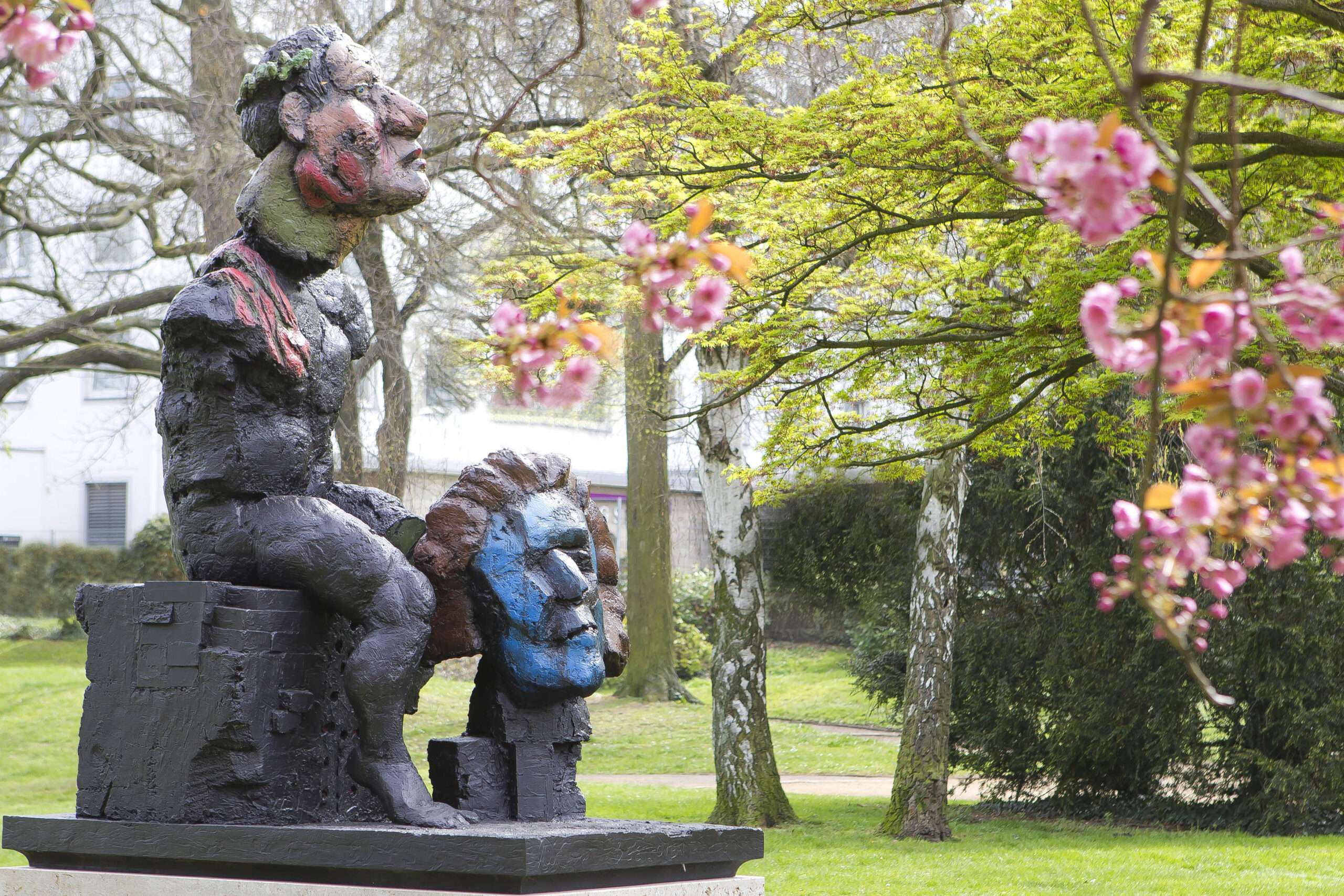
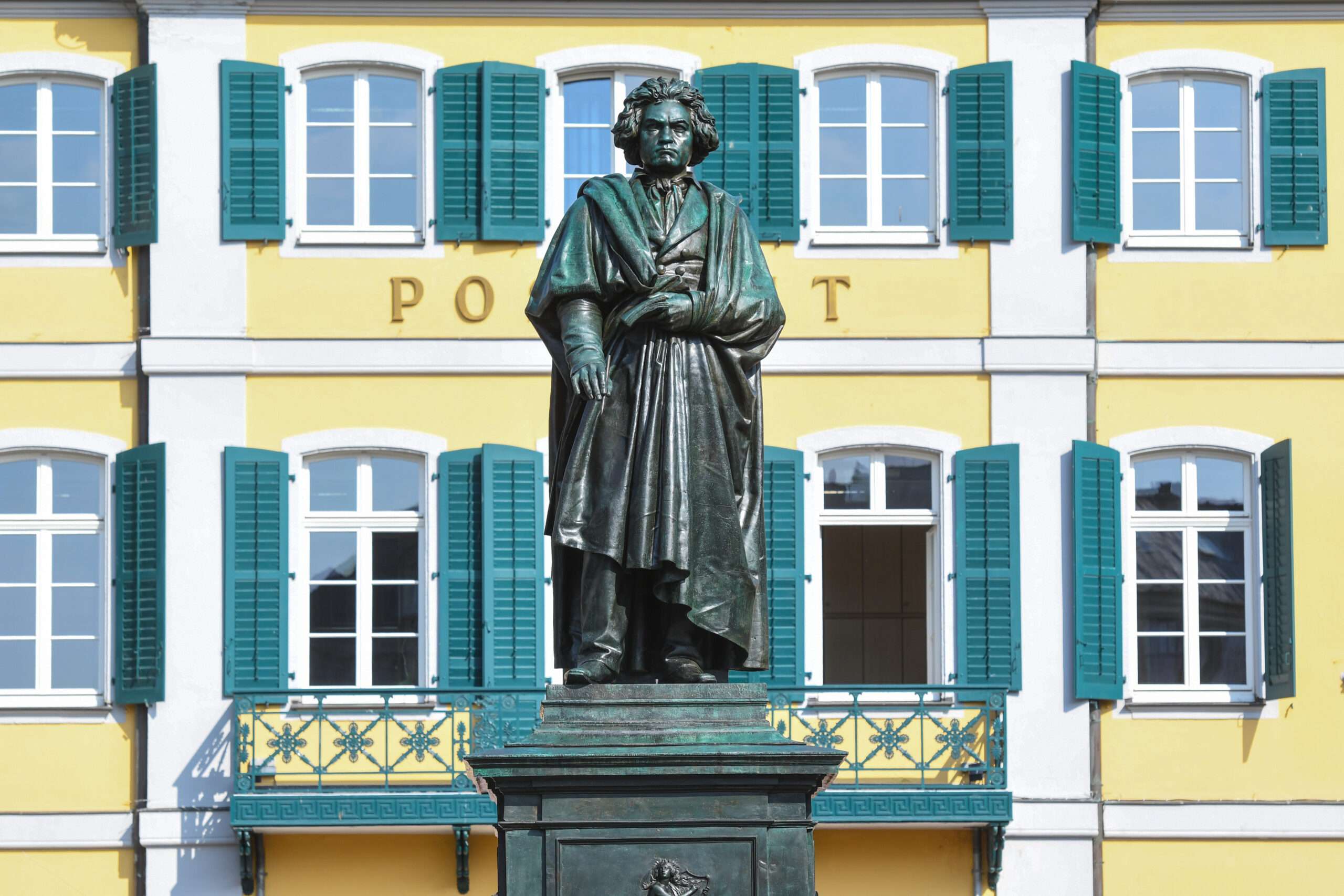
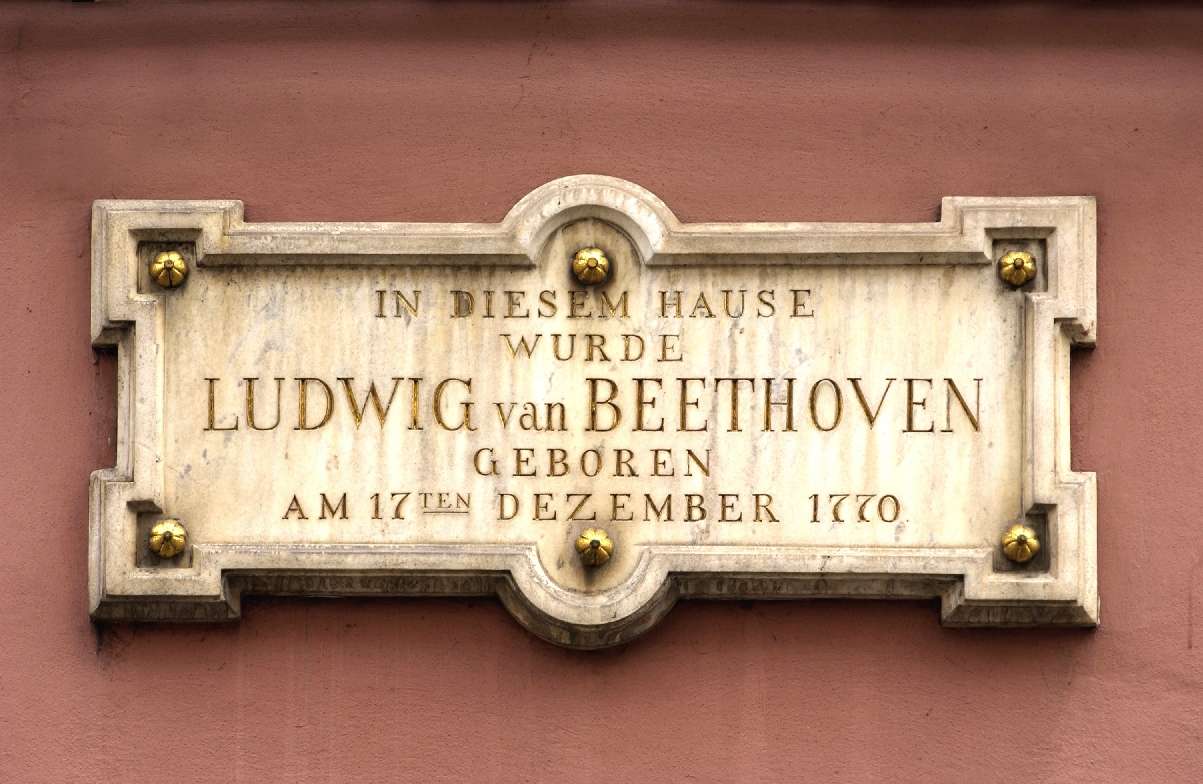
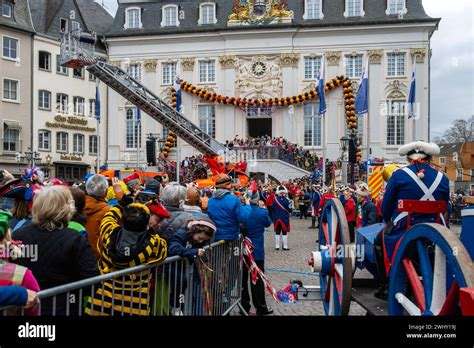
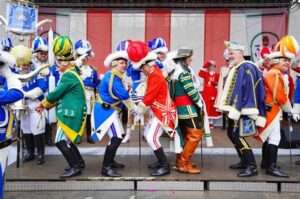 numerous in Bonn and the surrounding districts. Each carnival club has different ‘uniforms’ or costumes. The uniforms date back to the French occupation at the end of the 18th / beginning of the 19th century. The occupiers banned carnival because they feared unrest. But after the occupation ended people celebrated again, wearing the uniforms the French had left behind. This was a way of making fun of the occupiers, and later also of the Prussian occupiers. One remnant is the ‘
numerous in Bonn and the surrounding districts. Each carnival club has different ‘uniforms’ or costumes. The uniforms date back to the French occupation at the end of the 18th / beginning of the 19th century. The occupiers banned carnival because they feared unrest. But after the occupation ended people celebrated again, wearing the uniforms the French had left behind. This was a way of making fun of the occupiers, and later also of the Prussian occupiers. One remnant is the ‘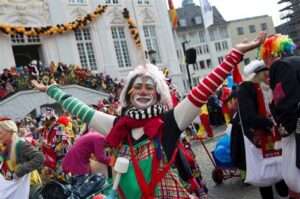 day, cut off the ties of the men and symbolically take power. This custom was introduced over 200 years ago, in 1824, by the Beuel washerwomen. At that time, the men brought the freshly washed laundry to Cologne by ship, received payment for it and promptly squandered it during Carnival. In 1824 the washerwomen had had enough and decided to take drastic action. They got together for a coffee klatch and founded the Old Beuel Women’s Committee 1824 e. V. Since then, the town hall has traditionally been stormed in Beuel where the
day, cut off the ties of the men and symbolically take power. This custom was introduced over 200 years ago, in 1824, by the Beuel washerwomen. At that time, the men brought the freshly washed laundry to Cologne by ship, received payment for it and promptly squandered it during Carnival. In 1824 the washerwomen had had enough and decided to take drastic action. They got together for a coffee klatch and founded the Old Beuel Women’s Committee 1824 e. V. Since then, the town hall has traditionally been stormed in Beuel where the 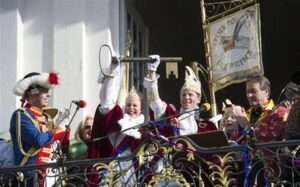 of people on foot and musicians and bands parade through the city centre and the northern part of the city. Thousands of people line the route and collect sweets and bouquets of flowers. For those who have never been: make sure you have enough bags for the sweets.
of people on foot and musicians and bands parade through the city centre and the northern part of the city. Thousands of people line the route and collect sweets and bouquets of flowers. For those who have never been: make sure you have enough bags for the sweets.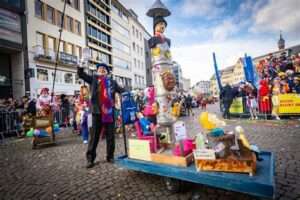 It is definitely worth taking part in the carnival adventure, even if you are not from Bonn.
It is definitely worth taking part in the carnival adventure, even if you are not from Bonn.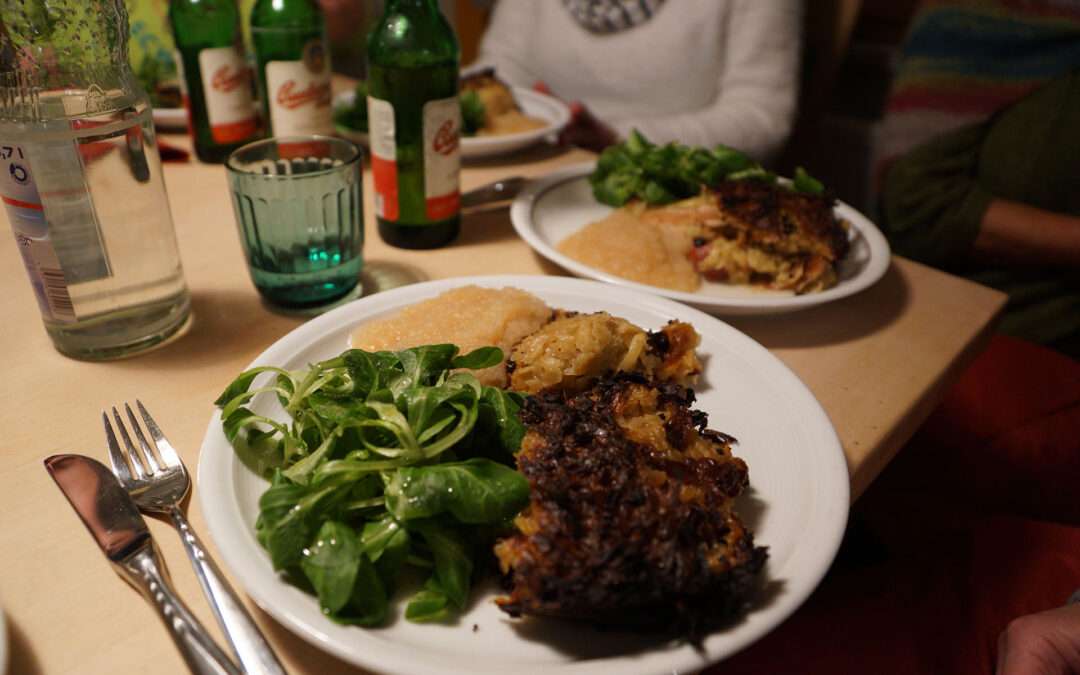

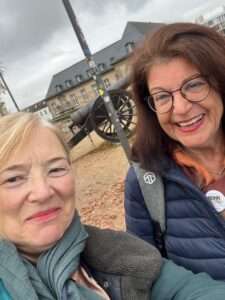 I, the only member of the Greeter family living in Sonnenpütz, supplies the homemade apple puree that is often served with it. I make it using the old apple variety ‘Kaiser Wilhelm’ that are growing in my garden in Kessenich.
I, the only member of the Greeter family living in Sonnenpütz, supplies the homemade apple puree that is often served with it. I make it using the old apple variety ‘Kaiser Wilhelm’ that are growing in my garden in Kessenich.
Recent Comments